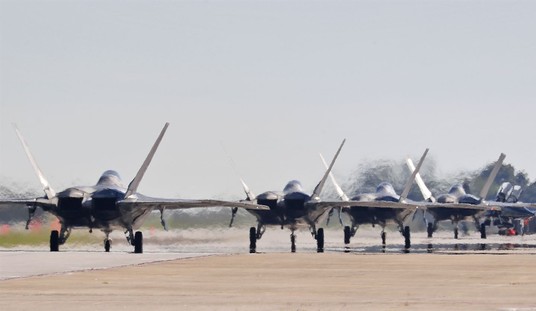Come on, man. It’s not that much of a mystery, is it? Like any other social issue, any number of factors might play into levels of violence, especially in long-term trends. But the Associated Press’ claim that the sudden explosion in violence “defies easy explanation” is akin to micturating on heads while calling it precipitation:
Still reeling from the coronavirus pandemic and street protests over the police killing of George Floyd, exhausted cities around the nation are facing yet another challenge: a surge in shootings that has left dozens dead, including young children.
The spike defies easy explanation, experts say, pointing to the toxic mix of issues facing America in 2020: an unemployment rate not seen in a generation, a pandemic that has killed more than 130,000 people, stay-at-home orders, rising anger over police brutality, intense stress, even the weather.
“I think it’s just a perfect storm of distress in America,” said Atlanta Mayor Keisha Lance Bottoms after a weekend of bloodshed in her city.
Jerry Ratcliffe, a Temple University criminal justice professor and host of the “Reducing Crime” podcast, put it more bluntly: “Anybody who thinks they can disentangle all of this probably doesn’t know what they’re talking about.”
Oh, I think people can take a look around and see for themselves what suddenly changed right before the uptick in violence. In Atlanta specifically, it wasn’t a “perfect storm of distress”; it was the decision to file charges against two police officers in the Rayshard Brooks case before the investigation could be finished. That led to an initial blue-flu walkout by police and a sharp retreat in assertiveness ever since. That all but announced “open season” on the streets, and the violent recognized it better than the politicians and the media.
That has been the trend in all these cities — protests, followed by retreats by city leadership on enforcing the law. Some of this definitely preceded the protests. For instance, California went as far as making burglaries and thefts under $950 into misdemeanors, which unsurprisingly resulted in an increase of those crimes. Bail reform put more criminals on the streets, so much so that New York governor Andrew Cuomo supported a rollback of those reforms this spring. The COVID-19 lockdown undoubtedly contributes to the general unrest and unease, too.
The increase in violent crime, however, has a very recent and relatively precise starting point. And that was when politicians across the country began demanding reductions in policing, and some — like Minneapolis — began working to dismantle it altogether. The police officers on the job know very well that they have less support from their community leadership, and are much less likely to take risks to intervene than they were three months ago. That’s not just in Atlanta, but in every major city in America, followed closely by the surge in violence that “defies easy explanation.”
That’s nonsense, but it’s also pretty much par for the course. The media narrative is that there are no trade-offs for reducing or even eliminating law enforcement. The people on the front lines, especially here in Minneapolis, know better. True police reform requires more resources and better tactics, not fewer resources and no tactics. It took us decades to learn that lesson; let’s hope it doesn’t take us decades to relearn it.








Join the conversation as a VIP Member